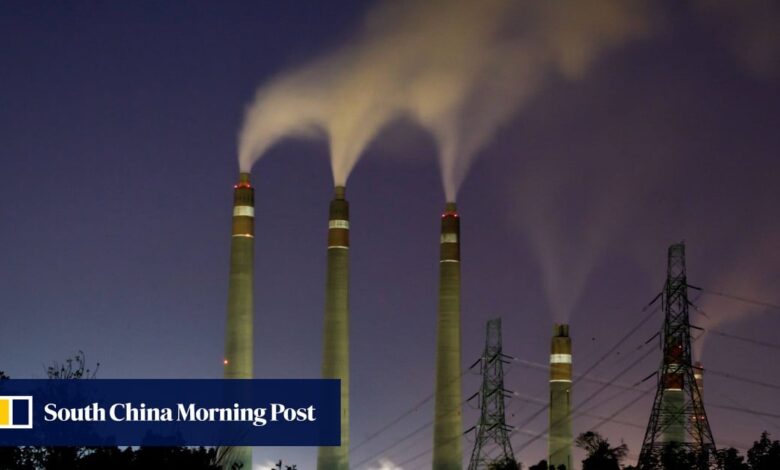China makes strides on Xi’s pledge to stop backing coal-fired power abroad, but ‘naughty’ firms threaten headway: report

However, investments in overseas coal capacity haven’t come to a complete standstill, and some previously cancelled or shelved coal projects have been revived despite the commitment, according to climate analysts who expressed concern about the trend.
China cancelled 36 overseas coal plants with a combined capacity of 36.3 gigawatts (GW) between September 2021 and July 2023, according to a report released on Monday by Manila-based non-profit People of Asia for Climate Solutions (PACS) and the Helsinki-based Centre for Research on Energy and Clean Air (CREA). The report comes two years after Chinese President Xi Jinping’s announcement at the United Nations General Assembly (UNGA) that China would “not build new coal-fired power projects abroad”.
The reduction translates to avoiding 163 million tonnes of carbon-dioxide emissions per year, or a total of 6.2 billion tonnes of emissions over the lifetime of the coal projects, according to the report.
At the time of the 2021 announcement, Chinese financing stood behind a total of 103 coal plants in the planning or construction phases in 28 countries with a combined capacity of 104GW. If completed, those projects would emit 471 million tonnes of carbon dioxide annually.
The amount of capacity cancelled during the second year of Beijing’s pledge increased by 70 per cent compared with the first year, showing an acceleration of China’s overseas climate actions, the report said.
“It is encouraging to see more projects being cancelled in the second year,” said Tom Wang Xiaojun, executive director of PACS. “Each tonne or gram of carbon emissions avoided is a badly needed pullback from the sliding-away climate crisis. In the meantime, it is alarming to see new coal projects being agreed upon and constructed way after China’s pledge at the UNGA in 2021.”
Moreover, the two organisations found that 7.2GW of China-backed capacity has been revived after being initially cancelled or shelved over the past two years, at projects based in Indonesia, Laos, Nigeria, Iran, and Bosnia and Herzegovina.
Governments in some of the host countries seem to be pushing the revived projects to develop coal-fired capacity to address gas-supply constraints during the cold season and increase access to electricity, the analysts said.
“Clearly, it takes multiple stakeholders, including but way not limited to Beijing and host country governments, to turn the pledge into reality,” said Wang.
China, India worst hit as half a million coal workers face job cuts globally by 2035
China, India worst hit as half a million coal workers face job cuts globally by 2035
On the other hand, Chinese companies that have invested in new coal power plants overseas, especially in industrial parks, are also being “naughty” and testing the ambiguity of the no-overseas-coal-financing pledge, he said.
For example, captive coal power plants, which are installed by a specific entity to cater to its own power needs, remain a grey area of Beijing’s pledge. This category continued to expand, totalling 3.1GW of capacity by the end of August 2023 despite the overseas coal ban, the report found.
China falls off Paris Agreement pace with increasing coal use: analysts
China falls off Paris Agreement pace with increasing coal use: analysts
The analysts urged China to take more immediate action to fulfil its promise and aid the host countries in their transition away from coal.
“China’s commitment to curbing overseas coal plant investments remains strong, with one-third of the projects being cancelled over the last two years resulting in considerable progress made in reducing potential carbon emissions,” said Nandikesh Sivalingam, director of CREA. “There is definitely more potential for China to go further with cancelling the remaining coal projects or to convert them to renewable energy.”






